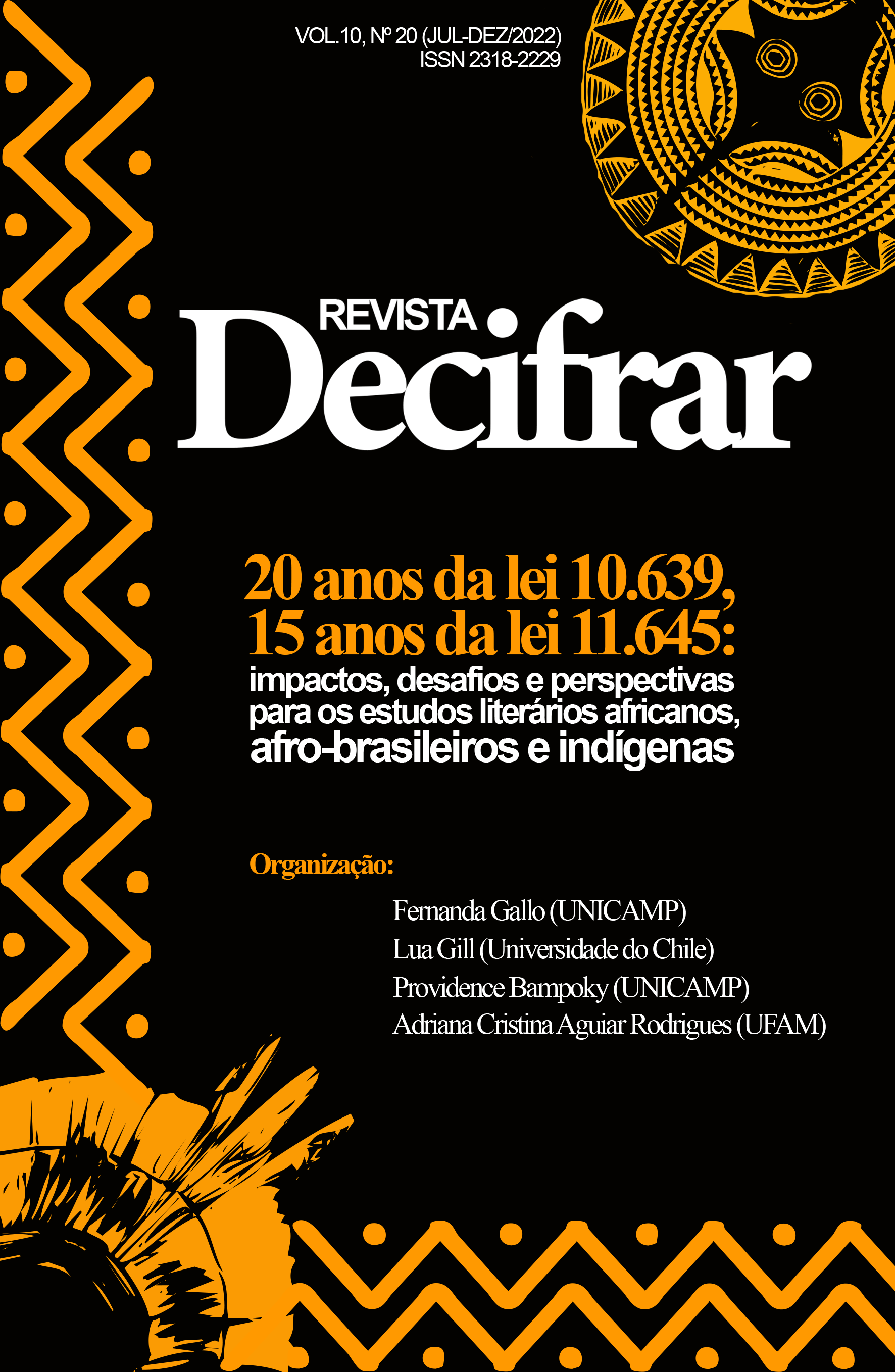CANOA POÉTICA NO RIO DE MEMÓRIAS DE POTIGUARA
Resumo
RESUMO: O objetivo deste trabalho é investigar de que forma a ancestralidade, a escrita de vivências, o protagonismo da mulher indígena estão experimentados na obra Metade Cara, Metade Máscara, de Eliane Potiguara; e como a violência é utilizada como categoria de silenciamento. Potiguara ancora-se na ancestralidade, percorrendo os mais de quinhentos anos de invasão em uma narrativa atemporal. Nessa narrativa, temos a história de amor entre os personagens Cunhataí e Jurupiranga; a busca da ancestralidade; o reencontro com a identidade; a projeção de um futuro melhor. Tem-se, ainda, os relatos da escritora, ensaio, contação de histórias em uma narrativa politextual. Nosso interesse principal em analisar a obra voltou-se para três aspectos: a análise das imagens poéticas na obra e sua composição; o diálogo da literatura indígena contemporânea com seu grupo étnico e a escrita que fala em nome de uma coletividade. Há uma articulação entre a história de Potiguara e das mulheres indígenas ancestrais contemporâneas. A proposta de leitura dá-se a partir de um corpus teórico sobre memória, ancestralidade, bem como representatividade indígena, uma vez que estes elementos compõem a vivência da indígena na construção de sua subjetividade. Serão utilizados autores com reconhecidas contribuições sobre a temática da memória e identidade como Selligmann-Silva, Halbwachs, autores que discorrem sobre representatividade indígena como em Olivieri-Godet, Graúna, Kambeba, Krenak, entre outros. Conhecer obras como de Potiguara é reconhecer a multiplicidade existente na literatura contemporânea e ouvir o canto poético de resistência.
PALAVRAS-CHAVE: literatura indígena; memória; ancestralidade; identidade; violência.
Downloads
Downloads
Publicado
Como Citar
Edição
Seção
Licença
Todos os artigos desta revista obedecem a licença Creative Commons - Attribution 4.0 International (CC BY 4.0).



























